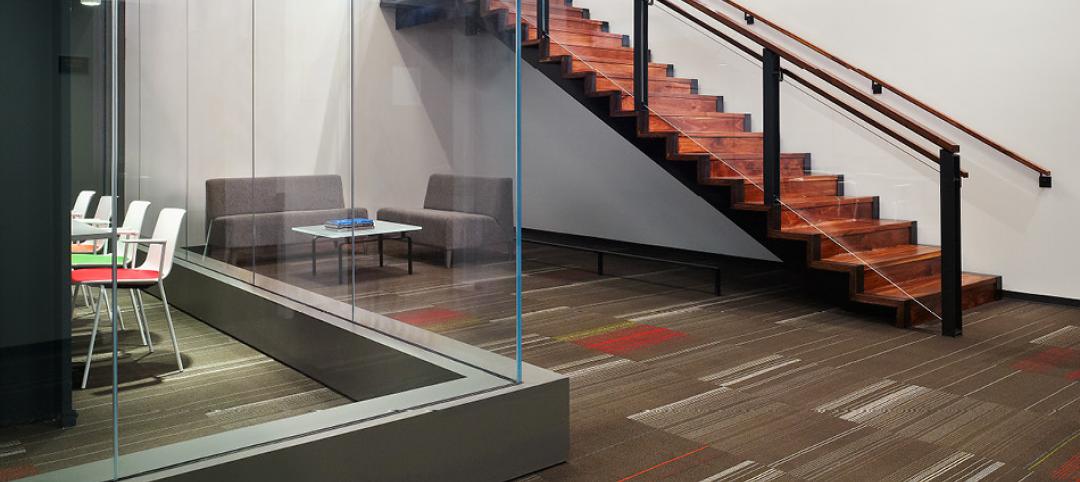Making Veterans Administration healthcare projects “better planned, better delivered” is the new goal of the VA’s Office of Construction and Facilities Management, according to Executive Director Stella S. Fiotes, AIA.
CFM plans, designs, and constructs (with the help of private-sector AEC consultants, of course) all VA projects greater than $10 million in value. The office has responsibility for design construction standards, sustainability, seismic corrections, historic preservation, and physical security.
The VA has a massive portfolio—151 hospitals, 827 community-based outpatient clinics, and 300 veterans’ centers, Fiotes told attendees at the recent American College of Healthcare Architects/AIA Academy of Architecture for Health (ACHA/AAH) Summer Leadership Summit in Chicago. Nearly two-thirds of its facilities are more than 60 years old, and 30% have a historic designation or could qualify for one.Fiotes said the VA is in the midst of a major policy shift, from “figuring out what’s broken and fixing it as much as possible”—a strictly brick-and-mortar approach—to “figuring out what services veterans need and adapting service-delivery models, facilities, and funding distribution to better meet those needs.”
The new policy, known as VA Facilities Management Integrated Planning, is directed at addressing such concerns as the need to right-size facilities based not only on where veterans are today, but where they’ll be in the future, given that many older veterans are expected to move to the warmer regions of the U.S.
Fiotes said the VA is also looking to forge affiliations with public agencies, universities, and healthcare organizations as a way to stretch its capital investment budget. Serving the healthcare needs of veterans in rural areas remains a persistent concern, she said, as does the need for the VA to promote wellness and disease prevention for its clients.
Another major initiative: the Patient-Aligned Care Team. “Primary care is the foundation of VA healthcare delivery,” said Fiotes. PACT is designed to provide “one-stop” patient-centered care through coordinated “teamlets” consisting of a physician, a nurse, an LPN or technician, and a clerk, along with a clinical pharmacist, a dietitian, and a social worker. “No clinics have been designed based on this model, but we’re working on it,” said Fiotes. “We believe they can save 15-20% on costs.”
As for sustainability, Fiotes said all VA projects must earn at least LEED Silver or two Green Globes; every project is evaluated for the feasibility of using renewable energy. Structural resilience, particularly against the threat of rising sea levels or a tsunami, has become a priority as well.
Eight major VA projects—in Las Vegas, Milwaukee, Pittsburgh, San Antonio, San Diego, Cape Coral, Fla., and two in Biloxi, Miss.—will undergo post-occupancy evaluation this fiscal year to determine how well the buildings are meeting the needs of veterans and healthcare providers. Starting in FY 2014, all major projects will experience POEs within 18-24 months of occupancy.
Two innovation programs—selected from over 450 suggestions from Veterans Health Administration employees—are under way: the development of standardized designs for outpatient clinics, and research on making wayfinding in VA facilities consistent across the board.
Fiotes ended her talk to ACHA/AAH attendees on a tempting note: “We have over $6 billion in projects that have been identified and need to be acted on.”
Read our full report from the ACHA/AAH Summit.
Related Stories
| Jun 25, 2013
First look: Herzog & de Meuron's Jade Signature condo tower in Florida
Real estate developer Fortune International has released details of its new Jade Signature property, to be developed in Sunny Isles Beach near Miami. The luxury waterfront condo building will include 192 units in a 57-story building near high-end retail destinations and cultural venues.
| Jun 25, 2013
DC commission approves Gehry's redesign for Eisenhower memorial
Frank Gehry's updated for a new Dwight D. Eisenhower memorial in Washington, D.C., has been approved by the Eisenhower Memorial Commission, reports the Washington Post. The commission voted unanimously to approve the $110 million project, which has been gestating for 14 years.
| Jun 21, 2013
AIA report: Greater collaboration, stiffer competition among top trends in architecture
A new 34-page report from AIA highlights key trends in the architecture marketplace and their impact on business and growth.
| Jun 20, 2013
Virtual meetings enhance design of University at Buffalo Medical School
HOK designers in New York, St. Louis and Atlanta are using virtual meetings with their University at Buffalo (UB) client team to improve the design process for UB’s new School of Medicine and Biomedical Sciences on the Buffalo Niagara Medical Campus.
| Jun 19, 2013
Architects upbeat about the construction market
Following the first reversal into negative territory in ten months in April, AIA's Architecture Billings Index bounced back in May, reaching 52.9.
| Jun 19, 2013
NSF Sustainability begins verifying EPDs that can be used for LEED V4
NSF Sustainability has verified Environmental Product Declarations (EPDs) for nylon carpet styles and colors manufactured by Mannington Commercial and for J+J Flooring Group’s Kinetex® flooring product and Invision brand modular styles that use eKo® backing.
| Jun 19, 2013
Florida is latest battleground over LEED standards centered on certified wood
A nationwide battle over forest certification standards continues to be played out nationally and in Florida with legislation passed this month.
| Jun 19, 2013
Construction site safety improved in 2011
On-the-job construction fatalities dropped from 802 in 2010 to 781 in 2011, and recordable injuries fell from 4.7 per 100 workers in 2008 to 3.9 per 100 in 2011, according to data from the Bureau of Labor Statistics.
| Jun 19, 2013
New York City considers new construction standards for hospitals, multifamily buildings
Mayor Michael Bloomberg’s administration has proposed new building codes for hospitals and multifamily dwellings in New York City to help them be more resilient in the event of severe weather resulting from climate change.
| Jun 18, 2013
Report: HVAC occupancy sensors could slash building energy demand by 18%
Researchers at the DOE's Pacific Northwest National Laboratory conclude that significant energy savings can be achieved by varying ventilation levels based on the number of people in a given space.
















